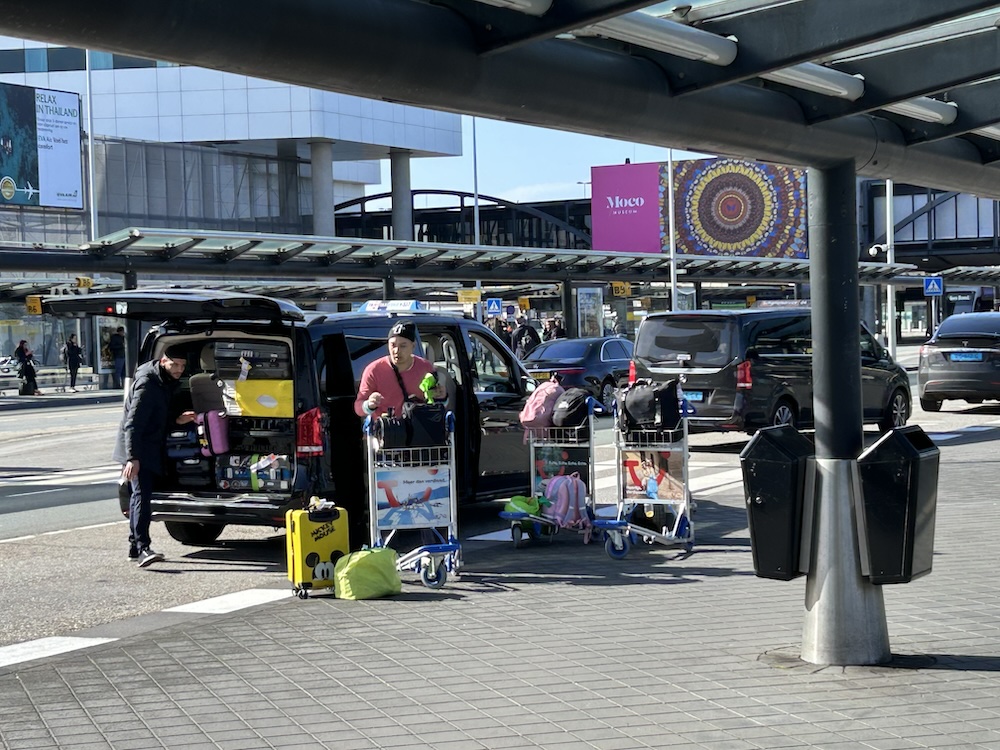Despite tightened legislation and increased efforts by enforcement agencies such as the Military Police, the National Police and the Human Environment and Transport Inspectorate (ILT), the problem surrounding taxi recruiters at Schiphol remains a persistent issue.
Taxi drivers with an official permit, who wait neatly in line at the designated taxi stands, encounter competition from so-called free drivers. These recruiters, who are active around Schiphol Plaza, try to attract the attention of unsuspecting travelers with loud shouts of “taxi, taxi, taxi” and thus lure them to their vehicles.
These 'gang' practices, although reduced since the legislation has been tightened, show that the battle against the provision of taxi services by Schiphol unlicensed taxi drivers is far from over. The enforcers face a complex task. According to current regulations, anyone with a taxi license is allowed to offer their services on the square in front of the airport. The restriction that taxis without a Schiphol permit are not allowed to be at the official stand does not seem to be very effective in practice. Loudly offering rides remains an effective method for recruiters to acquire customers, despite the potential confusion and inconvenience it causes to passengers.

The situation at Schiphol, where taxi recruiters try to recruit passengers outside the official taxi ranks, remains a source of irritation for permit holders.
The ILT's efforts, which are not only limited to Schiphol but also extend to inspections outside the airport, focus on compliance with driving and rest times. However, these measures are not sufficient to completely eliminate the problems with taxi recruiters. It seems that as long as tourists and travelers believe that they can get a cheaper price from the unofficial providers, the appeal of these services will remain.
It is clear that a layered approach is needed to effectively tackle the taxi problem at Schiphol. This should not only consist of stricter enforcement and controls, but also of informing travelers about the risks and disadvantages of accepting offers from taxi recruiters. In addition, cooperation between Schiphol Airport, the municipality and the various enforcement agencies could be further strengthened to develop a uniform strategy against these practices.




